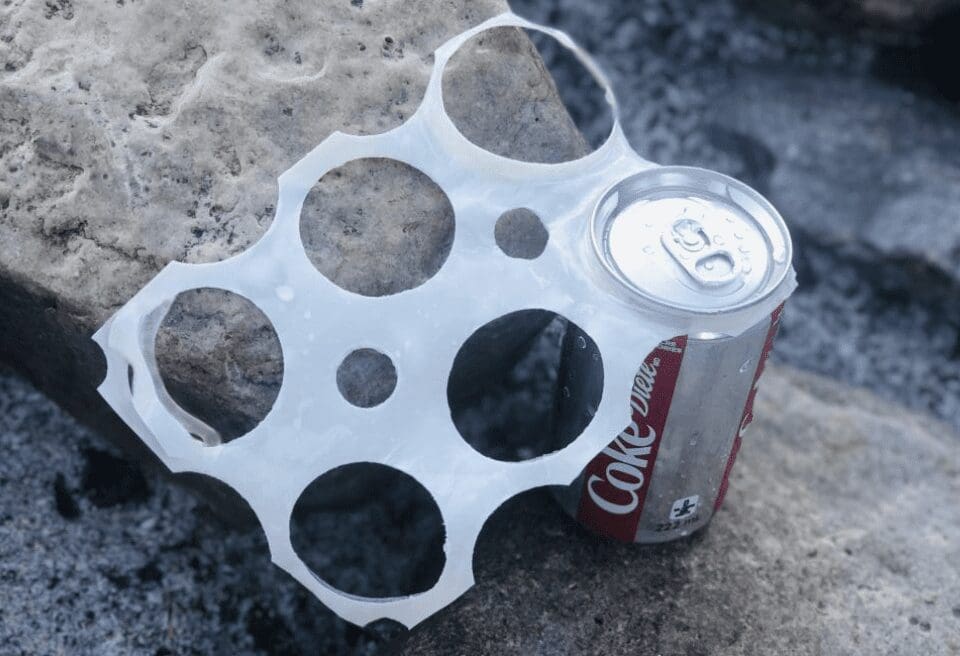As cities and states across the county have been taking measures in recent years like banning plastic bags and styrofoam to help prevent waste and sustain the environment, Delaware has a new bill to consider that would further that effort.
Senate Bill 263, sponsored by Sen. Trey Paradee, D-Dover, would prohibit the sale of beverages packaged in rings or other plastic connectors in Delaware, starting July 1, 2025.
The bill would not impact aseptic containers, such as juice boxes.
“As a mountain of evidence continues to pour in about the harmful effects of plastic in our environment and in our bodies, we simply cannot afford to keep doing things the same way and hope this problem solves itself,” Paradee said.
There is no fiscal impact on the state if the bill becomes law.
In 2019 Delaware passed and enacted House Bill 130 which banned single-use plastic bags from being used at the largest retailers across Delaware – those 7,000 square feet or larger, and those with three or more locations of at least 3,000 square feet.
But, originally after the ban, stores found a loophole and would give out thicker plastic bags, since HB 130 stated that plastic bags had to be at least 2.25 millimeters thick and designed to be used at least 125 times.
A law enacted in 2020 banned the thicker ones as well.
Stores have transitioned to reusable bags since.
Delaware also bans polystyrene (styrofoam) food containers, and restaurants in the state have until July 1, 2025, to phase out those containers.
The six-pack rings, which help package items like soda, water bottles, beer and more, have been denounced for harming wildlife and contributing to pollution ever since they replaced paper and metal ring holders following their invention in the 1960s.
Notably, wildlife like turtles and large fish can get stuck in them, which can cause them to suffocate or get caught and stuck on other harmful objects.
“The future of Delaware’s vibrant tourism industry demands that we step up now to reduce the volume of microplastics that is already threatening to choke the life out of our ocean, bays and marshes,” Paradee said. “The legislation I sponsored today marks the next step in our ongoing work to protect the rights of future generations to share in the rich natural heritage of this great state.”
The legislation would also curtail the use of plastic shrink wrap and other plastic connectors commonly used to package bottles and cans.
Delaware was among the few dozen states that banned non-degradable or non-recyclable ring carriers by 1990. Soon after, a federal mandate required all plastic beverage rings to be degradable.
However, concerns about plastic ring carriers have reemerged in recent years with new attention being paid to the micro- and nano-plastics that result from the decomposition process.
Mostly invisible to the naked eye, the plastic particles end up in waterways, soil and the air where they enter the human food chain.
Recent studies have linked the presence of microplastics in the bloodstream to higher risks of heart attack, stroke and numerous other health issues.
Plastic beverage rings are also not easily recyclable, and the Delaware Solid Waste Authority does not accept them in the statewide single-stream recycling program.
While Maine became the nation’s first state to ban plastic beverage rings in 1989, Canada followed suit by enacting a ban on plastic beverage rings in 2023. Beverage ring bans also have been introduced in Rhode Island and New York.
The beverage industry also is moving away from plastic rings, the bill points out.
Coca-Cola, PepsiCo, AB InBev, Molson Coors, Grupo Modelo, and several other of the world’s largest beverage companies have announced plans to replace plastic rings with fiber based alternatives in some markets.
“We’ve all seen pictures of animals stuck in plastic 6 pack rings and we know that they usually cannot survive once this happens to them,” said Rep. Sophie Phillips, D-Bear and the House prime sponsor. “Our wildlife are essential to our ecosystem functioning properly, so decreasing the amount of plastic in our environment, one step at a time, will help ensure a strong and healthy planet for all of us.”
Senate Bill 263 will first be discussed in the Senate Environment, Energy & Transportation Committee.


Raised in Doylestown, Pennsylvania, Jarek earned a B.A. in journalism and a B.A. in political science from Temple University in 2021. After running CNN’s Michael Smerconish’s YouTube channel, Jarek became a reporter for the Bucks County Herald before joining Delaware LIVE News.
Jarek can be reached by email at [email protected] or by phone at (215) 450-9982. Follow him on Twitter @jarekrutz and on LinkedIn
Share this Post









